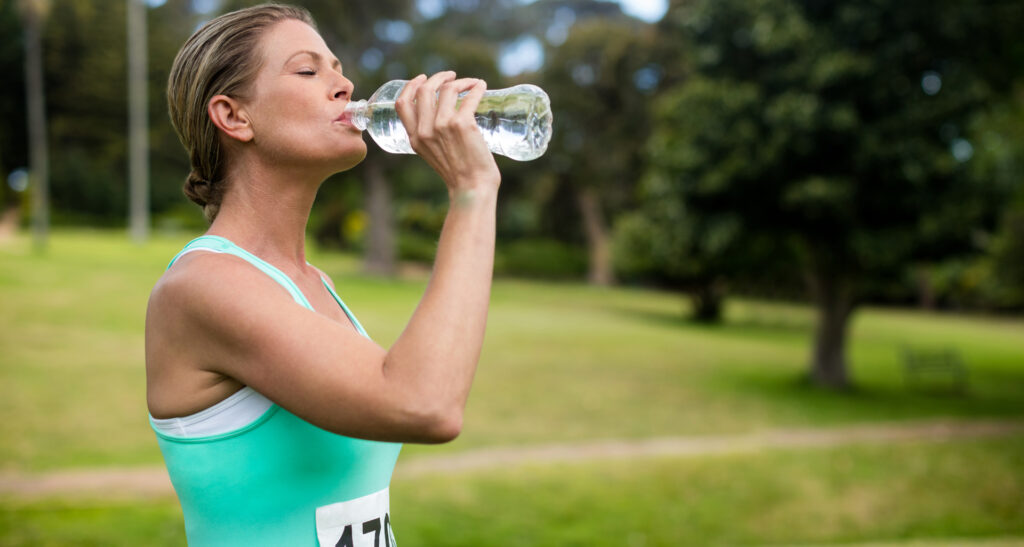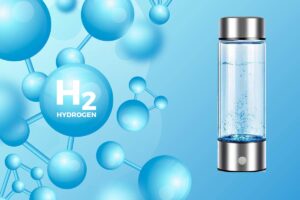Hydrogen water has become a popular supplement in the sports and fitness community due to its potential antioxidant, anti-inflammatory, and recovery-promoting properties. Athletes, from casual runners to professional competitors, are increasingly turning to hydrogen-rich water to enhance performance, reduce fatigue, and improve post-exercise recovery. Scientific studies provide growing evidence for its benefits, although understanding dosage, timing, and optimal concentrations is crucial.
What is Hydrogen Water?
Hydrogen water, also known as hydrogen-rich water, is simply water infused with molecular hydrogen gas (H₂). Molecular hydrogen is unique because it can selectively neutralize harmful free radicals, such as hydroxyl radicals, while leaving beneficial reactive oxygen species (ROS) intact. This makes it a potentially powerful supplement for athletes who face high oxidative stress due to intense exercise.
Hydrogen water is typically consumed in concentrations ranging from 0.5 to 3.0 ppm (parts per million), with daily consumption of 1–2 liters being common.
How Hydrogen Water Might Improve Athletic Performance
Exercise, particularly high-intensity or endurance training, increases oxidative stress and inflammation in muscles. Molecular hydrogen targets these stressors through several mechanisms:
- Reduction of Exercise-Induced Oxidative Stress: Hydrogen neutralizes harmful free radicals generated during strenuous activity.
- Anti-Inflammatory Effects: Hydrogen water can reduce inflammation in muscle tissues, minimizing soreness and supporting faster recovery.
- Mitochondrial Support: By protecting mitochondria from oxidative damage, hydrogen water helps maintain efficient energy production during exercise.
- Improved Lactate Clearance: Some studies suggest hydrogen water may help reduce lactic acid buildup, decreasing fatigue.
These mechanisms indicate that hydrogen water may benefit both endurance athletes and those engaging in high-intensity interval training.
Key Studies on Hydrogen Water and Exercise
1. Reduced Fatigue in Runners
A 2012 study examined the effects of hydrogen-rich water on 10 male runners. Participants consumed hydrogen water before running and experienced significantly lower blood lactate levels post-exercise, suggesting reduced muscle fatigue. This indicates that hydrogen water may enhance endurance performance during prolonged activities.
2. Protection Against Oxidative Stress in Athletes
A 2013 study involving elite soccer players found that drinking hydrogen-rich water daily for two weeks decreased markers of oxidative stress and inflammation. Participants also reported improved recovery after training sessions, highlighting hydrogen water’s potential to reduce cumulative physical stress.
3. Improved Muscle Recovery in Resistance Training
In a 2016 study, participants undergoing resistance training consumed hydrogen water before and after workouts. Results showed reduced exercise-induced muscle damage, decreased soreness, and faster recovery compared to a control group, demonstrating hydrogen water’s potential for strength training athletes.
4. Enhanced Endurance Performance
A 2019 trial with cyclists tested the impact of hydrogen water on performance metrics. While peak power output remained unchanged, participants experienced lower oxidative stress and improved perceived exertion, suggesting that hydrogen water can help maintain performance under fatigue.
Optimal PPM Levels for Athletic Benefits
Studies indicate that the Best PPM Level for Therapeutic Hydrogen Water for exercise ranges between 1.0 and 1.6 ppm. This concentration provides significant antioxidant and anti-inflammatory effects without the difficulty of maintaining higher hydrogen concentrations in bottled water.
For higher-intensity athletes, slightly elevated concentrations (up to 2.5 ppm) may provide additional recovery support, but storage and timing are critical to ensure hydrogen levels remain stable.
How to Incorporate Hydrogen Water into Training
Athletes seeking to maximize benefits from hydrogen water can follow these guidelines:
- Pre-Workout Consumption: Drinking 200–400 ml of hydrogen water 15–30 minutes before exercise may reduce oxidative stress and improve endurance.
- Post-Workout Recovery: Consuming hydrogen water immediately after training can decrease inflammation and accelerate muscle recovery.
- Daily Hydration: Regular daily intake of 1–2 liters supports overall antioxidant defenses and may reduce cumulative oxidative damage over time.
- Proper Storage: Use sealed, opaque containers and consume hydrogen water soon after production to maintain optimal PPM levels.
Advantages Compared to Traditional Antioxidants
Unlike standard antioxidant supplements, such as vitamin C or E, hydrogen water:
- Selectively targets harmful free radicals without disrupting beneficial ROS signaling, which is essential for muscle adaptation and growth.
- Easily penetrates cells and mitochondria, providing more direct protection for active tissues.
- Can be safely consumed daily without concerns of over-supplementation or side effects.
These advantages make hydrogen water a promising addition to an athlete’s hydration and recovery strategy.
FAQs
Q1: Can hydrogen water improve performance in all sports?
While benefits are most evident in endurance and high-intensity exercises, hydrogen water can support recovery and reduce oxidative stress across various sports disciplines.
Q2: How soon will I notice effects?
Some athletes report improved recovery within a few days, while measurable reductions in oxidative stress may require 1–2 weeks of consistent consumption.
Q3: Are there any side effects?
No adverse effects have been reported in clinical trials, even with daily intake over several weeks.
Q4: Can hydrogen water replace regular hydration?
Hydrogen water should complement, not replace, regular hydration with plain water. Adequate overall fluid intake is essential for athletic performance.
Q5: How does hydrogen water compare to other recovery methods?
Hydrogen water works synergistically with proper nutrition, rest, and stretching to optimize recovery. While not a standalone solution, it enhances the body’s natural ability to repair and maintain muscles.
Conclusion
Scientific studies suggest that hydrogen water can be a valuable tool for athletes seeking to reduce fatigue, combat oxidative stress, and improve recovery. With concentrations in the 1.0–1.6 ppm range, hydrogen water provides effective antioxidant and anti-inflammatory support without risk, making it a safe and practical addition to daily training routines.
By combining hydrogen water with consistent hydration, balanced nutrition, and structured training, athletes can enhance performance, accelerate recovery, and protect their bodies from long-term oxidative damage. As research continues, hydrogen water may become a standard component of sports nutrition and recovery strategies.



